
 Flash News
Flash News
Arrested a few meters from SPAK, the Special Prosecution seeks 17 years in prison for the drug 'boss'
Giro D'Italia starts today, here are the road axes that will be blocked in Tirana from 13:00-18:00
Who is the new Pope?
Pope Leo XIV greets the faithful for the first time in St. Peter's Square
"Freedom works", DP welcomes the US position
Sky News in the migrant camps in Shengjin: 15 EU countries demand an account for the project, Italy refuses

The well-known British media Sky News has entered the immigrant camps in Shengjin and Gjadër that are being built to host the immigrants who will be rescued by the Italian ships.
In the article, it is described how far the works have reached so far for their establishment and how it will work.
Italy 's controversial plan to send asylum seekers to Albania is expected to start in a few weeks, after many delays and strong criticism.
The agreement was first announced by Italian Prime Minister Giorgia Meloni and Albanian Prime Minister Edi Rama last November in Rome.
The agreement allows up to 36,000 migrants - rescued by Italian ships, including coast guards or border police - to be sent to Albania each year.
Two Italian-run immigrant centers are being built in Shengjin and Gjadër, about 45 miles north of the Albanian capital, Tirana.
The first one in the port of Shengjin contains four large two-story buildings with an area of 6,000 square meters.
Italian state police manager Evandro Clementucci oversees the center and showed us around the control room which monitors 40 CCTV cameras on the five-metre-high metal fence.
Mr Clementucci explained that only men rescued in international waters would be sent here. Those rescued by ships run by charities or groups of migrants, who enter directly on Italian soil, or are found in Italian waters, will be excluded from the scheme.
The plan applies to people from countries considered "safe" by the Italian government such as Tunisia, Egypt, Algeria, Nigeria, Morocco and Bangladesh.
It means, in case of a rejected asylum request, they can be repatriated due to Italy's agreements with those countries.
Shengjini is the initial reception center for immigrants. It is made up of around 70 people, including Italian police officers and private contractors who manage both centres.
Migrants who arrive here receive a health check, are given food, water and clothing and have access to independent legal advice.
"I want to be clear: I don't see them as criminals. We will treat them as our guests, we want them to be safe," Mr. Clementucci told us.
We also saw waiting areas, medical facilities, showers and parking for buses heading to Gjadër - a former military base and the next step for migrants on their journey.
During the 25-minute journey there, Italy's ambassador to Albania, Fabrizio Bucci, rejected any comparison to the UK's failed asylum scheme in Rwanda.
"The two plans are not comparable and the alleged link between them is inappropriate. Within our centers in Albania there is Italian jurisdiction: that is, Italian laws and Italian rules. We have also studied the Albanian migration legislation and know that it complies with the European legislation "- said Mr. Bucci.
Construction in downtown Gjader appears to be behind schedule - building materials, windows and doors fill the site - but officials are confident it will be ready "within a few weeks".
The opening has already been postponed three times. High temperatures were among the reasons for the delays.
The capacity for the Shengjin and Gjader centers is supposed to be 3,000 people per month, but we understand that initially it will be more likely around 1,000 people.
Successful asylum seekers will be sent to Italy by ferry ," the article states.
The British media writes that 15 of the 27 member countries of the European Union have asked Italy for the details of the scheme for the construction of the centers.
According to the undersecretary of state of the Italian presidency and delegate of Italian intelligence, Alfredo Mantovano, this is an "innovative model for managing illegal migration flows and is gaining wide consensus in Europe".
Our research suggests that 15 of the 27 European Union countries have asked Italy to share details of their scheme.
Italian officials have declined to say how much the project will cost, but we understand the five-year deal will cost almost €1 billion.
A spokesperson for the European Commission confirmed to Sky News that it is closely monitoring the scheme.
"It is possible for member states to cooperate with countries outside the EU in managing migration," European officials told us.
"But this must reflect all applicable safeguards and provisions. It is important that this is done in full respect of EU and international law." ", writes Sky News.
Sky News has also spoken to PD, Italy's centre-left and main opposition party, about the plan. Pierfrancesco Majorino, head of migration policy, described it as "shameful".
He said: "It's a botched operation that violates human rights. It's a damaging and expensive show."
Meanwhile, Riccardo Magi, from the pro-European and liberal "More Europe" party, has called the project the "Italian Guantanamo" because it "does not respect human rights and international laws."
Latest news

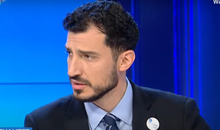
Mustafaj: Proud of the worthy campaign of the DP
2025-05-09 11:22:20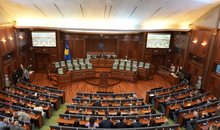
Constitution fails again, Kosovo still without a new Assembly
2025-05-09 11:06:55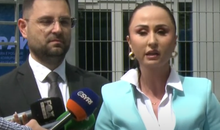





"Votes have no price", the US embassy in Tirana 'slaps' Rama
2025-05-09 10:06:49

Two young men arrested for supplying criminal groups with firearms
2025-05-09 09:45:19
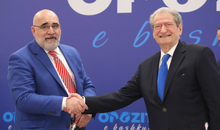






Foreign exchange/ How much foreign currencies are bought and sold today
2025-05-09 08:19:18
The gift that Berisha gave to Rama 'live'
2025-05-09 08:13:51
3 signs that show you are spiritually protected
2025-05-09 08:05:39

Bars can't hold back anymore, start increasing coffee prices, 4.7% more in April
2025-05-09 07:46:49

Horoscope, what do the stars have in store for you today?
2025-05-09 07:22:06
Unstable weather, afternoon brings rain
2025-05-09 07:01:29
Morning Post/ In 2 lines: What mattered yesterday in Albania
2025-05-09 06:45:46

How did LaCivita change the DP campaign? Berisha: He studied the opponent
2025-05-08 22:49:51

David defeats Goliath
2025-05-08 22:15:50

Journalist: There are SPAK infiltrators in party headquarters
2025-05-08 21:55:15
Who is the new Pope?
2025-05-08 21:48:13
Berisha finally reveals when he will retire from politics
2025-05-08 21:33:46


LaCivita in Lezha: Albanians will fire Edi Rama from his job
2025-05-08 21:11:20


Berisha: LaCivita chose us because he believes in Reagan's program
2025-05-08 20:48:40
He rejected America to serve Pogradec, Genti Çela tells about life in "Elevate"
2025-05-08 20:26:28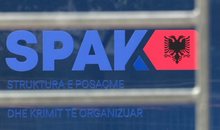




Pope Leo XIV greets the faithful for the first time in St. Peter's Square
2025-05-08 19:29:33




Photo session with LaCivitta in Tirana: For Great Albania
2025-05-08 18:40:18
Source: DASH decision a personal victory for Berisha
2025-05-08 18:30:10
Take off those crazy glasses and see where you've taken him?
2025-05-08 18:02:47
LDK files criminal charges against members of the incumbent Government
2025-05-08 18:02:00

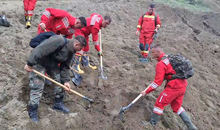
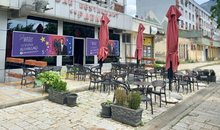




BIRN analysis: Tirana, the determining district for the future majority
2025-05-08 16:04:03




Chris LaCivita's contract with the DP, Berisha: 100% correct and clean
2025-05-08 15:11:11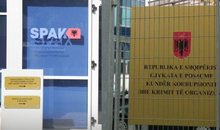

"These are the peak days", Berisha reveals when he will travel to the USA
2025-05-08 14:45:25


Endless boxes with filled-in ballots, DP demands separation of votes from Greece
2025-05-08 14:11:12


Photo/ Who are the 3 associates of Talo Çela arrested in Dubai?
2025-05-08 13:37:09
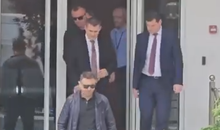
Hetimi për krimet zgjedhore, Altin Dumani zbarkon në Prokurorinë e Shkodrës
2025-05-08 13:06:21
DASH paves the way for Berisha, Alizoti: Great news on the eve of Great Albania!
2025-05-08 13:03:48
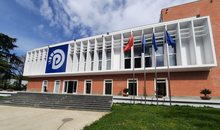
"Freedom works", DP welcomes the US position
2025-05-08 12:48:07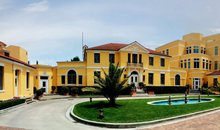
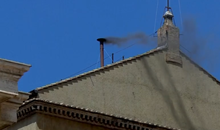
Black smoke rises from the Sistine Chapel, the Vatican still without a Pope
2025-05-08 12:26:18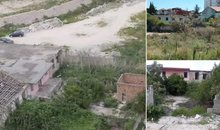





Davide Pecorrelli extradited to Albania
2025-05-08 11:29:04
'May 11, Albania will react', Xhaferri: Electoral criminals will pay
2025-05-08 11:21:46

Gjin Gjoni: Non Grata fell, Rama should get ready to go to McGonigal
2025-05-08 11:01:54
May 8th deadline for immigrants to vote in Greece extended by one day
2025-05-08 10:48:42
Collapse of massive chrome structure, still no trace of 29-year-old
2025-05-08 10:40:04
Vehicle bursts into flames in Paris Commune
2025-05-08 10:25:43
He gave land to his father and cousin, Basir Çollaku denounces the SP candidate
2025-05-08 10:16:16



